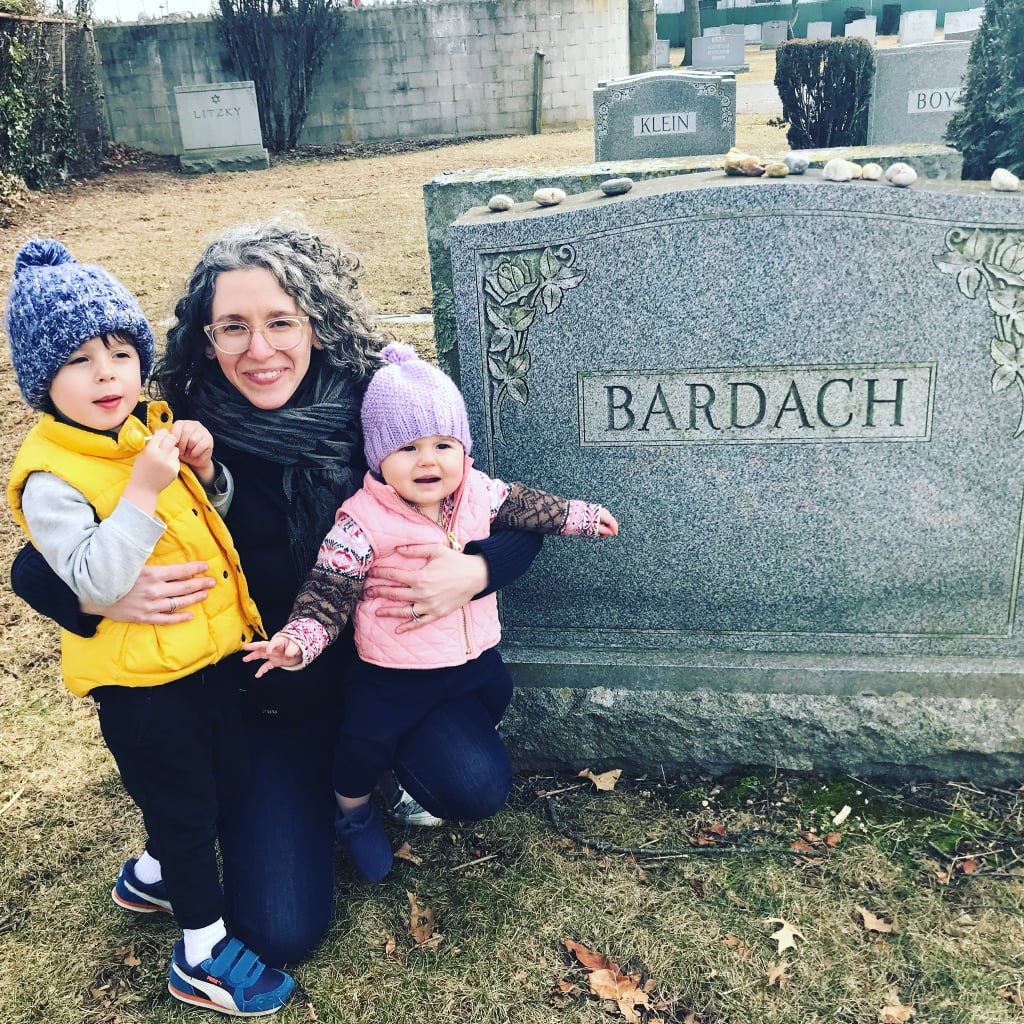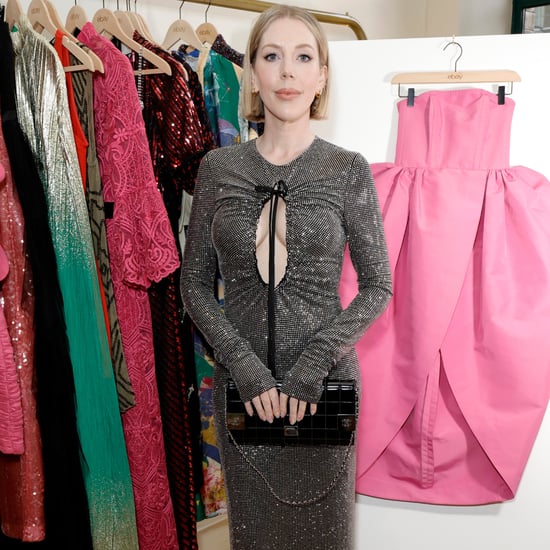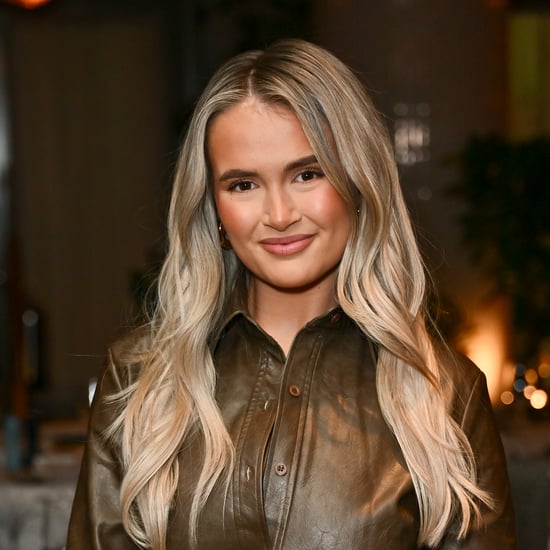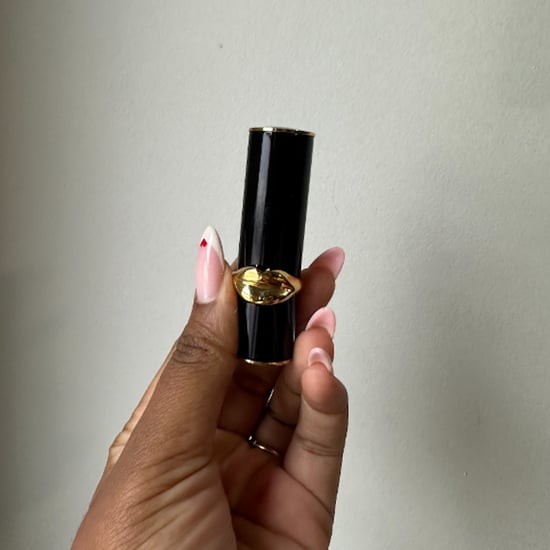What It's Like to Parent After You Lose Your Mom
This Woman's Perspective on Raising Kids After You've Lost Your Mom Will Catch Your Breath
As POPSUGAR editors, we independently select and write about stuff we love and think you'll like too. If you buy a product we have recommended, we may receive affiliate commission, which in turn supports our work.
Marisa Bardach Ramel was still in high school when her mother, Sally Bardach, was diagnosed with pancreatic cancer and told that she had a mere two months left to live.
She was in the midst of her senior year, so the tragic news prompted Marisa to consider how she'd get through prom, graduation, and her first day of college without her mother. At 17, she hadn't even considered what her mom's early death would mean nearly two decades later, when she would eventually become a mother herself.
Now, she's — as she puts it — a "motherless mother" of two young kids, and the struggles she faces ring true to any parent who has lost their own.
"I miss having her here to mother me while I mother them."
Her debut memoir, The Goodbye Diaries ($18), recounts those final weeks and poignantly shows both the unraveling and strengthening of one of life's greatest familial bonds. But what it's been like to raise her own children – a 3-year-old boy and a one-year-old baby girl – without her mom is a story still being written.
"I miss having her here to mother me while I mother them," she told PopSugar.
She also took time to share what this stage of her life has been like, what she misses most, and what she hopes other women — including those with living parents — learn from her experience.
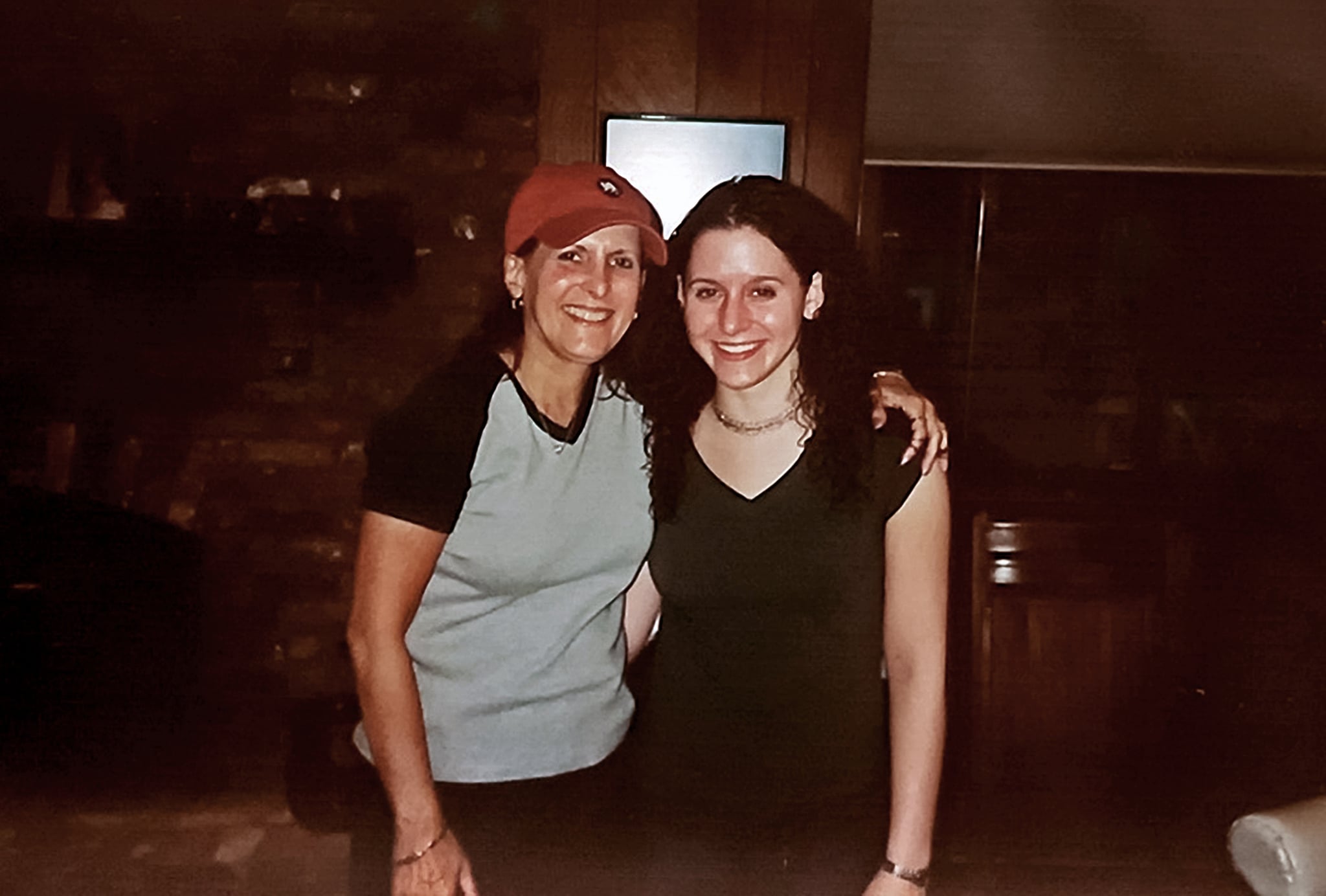
How did not having your mother affect your decision to start a family?
"I was very fearful about having kids without my mom. It felt like stepping into a new territory without a roadmap. Who would I call when I had questions? Who would teach me? My husband and I waited a couple years to have kids, and though I often blame his cold feet, mine were pretty icy, too."
What has been the hardest part about being a mother without having yours with you?
"I try to fight the worry that my kids will lose me too soon, the way I lost my mom, but it creeps into every memory I make."
"I lack a witness. My mom isn't here to gaze lovingly at my children. And she's not here to gaze lovingly at me in my new role as a mother. She's not here in the newborn days to say, 'Oh, you must be so tired,' or at the first daycare drop-off to say, 'Oh, you must feel so guilty,' or at the first milestones to say, 'Oh, you must be so proud.' My mom was the narrator of my life. She helped me understand my emotional state and my place in the world at any given moment."
Is there anything that you expected to be difficult about this loss that has been surprisingly . . . fine?
"A sense of freedom. It's like parenting gone rogue! There's no mom here to heckle me for breastfeeding – my mom was very modest and insisted that my aunt nursed my cousins because 'she's European.' There's no mom here to roll her eyes at the kids' kale smoothies . . . but my stepmom echoes her thoughts: 'What's that green sh*t?' It's been very freeing to choose my own path in parenting and feel confident in my choices because she's not here to say otherwise."
Are there unexpected things you miss about your mom that you only discovered since becoming a parent?
"I wish I could hear my mom retell stories of her life as a young mother. I remember fragments of the first few years of my life. I recall watching The Wizard of Oz religiously every afternoon and making Mom fast-forward through the flying monkeys, which, for some reason, scared me more than the Wicked Witch. I can still smell the grapefruit my mom and I would share most mornings before kindergarten. But most of my memories of family life are from later years, when my brother and I would fight over who had a later curfew."
There are certainly so many questions you wish you could ask your mom. What would be on your list if you had five minutes to grill her on parenting?
"Oh my gosh. Honestly, it's a bit painful to envision this conversation, because she's been gone 17 years and I've tried to just shut off the deep ache to talk to her. I also feel the pressure of, 'OMG, five minutes, what do I ask?!' Because all of us long to ask our mothers all the things. Here's what I'd ask . . ."
- "Did you really love being a stay-at-home-mom with me, as you claimed, or did you have moments or days of being dreadfully bored?"
- "Am I idealizing the days of being a mom with a landline compared to today when my kids compete with a stupid smartphone for my attention?"
- "What do you credit for us being close? How can I instill that in my daughter?"
- "Is it a problem that Emmet still says 'lellow' instead of 'yellow?'"
Do you feel that you might do some things differently as a parent because of your loss?
"All parents take endless photos today, mostly because we can, but mine feel like they're taken through this lens of loss. I'm trying to capture a moment before I lose it. I'm trying to capture my babies before I lose them. I'm trying to capture myself as a mother before they lose me. I've seen firsthand how my old family photos and videos have helped me hold onto my mother and get to know her as an adult. I try very hard to fight the worry that my kids will lose me too soon, the way I lost my mom, but it creeps into every memory I make."
What advice do you have for parents with living mothers? What do you wish they knew about your life?
"I feel like the message of my book is 'hug your mom.' But that's an oversimplification. Even if your mom is alive, maybe she's not in your life or maybe you're not that close or not particularly affectionate. One thing I learned after losing my mom is how lucky we were, because not all mothers and daughters are as close as us. The mother-daughter relationship is unique and complicated, and that's OK. So I suppose my advice is that whether your mom is here or no longer here, take a moment to acknowledge who she is or was and how she informed who you are today. That's how we keep our mothers with us. My mother lives on in me, and in the way I mother my own kids, and in the way they'll mother theirs. That's the powerful legacy of being a mom."



